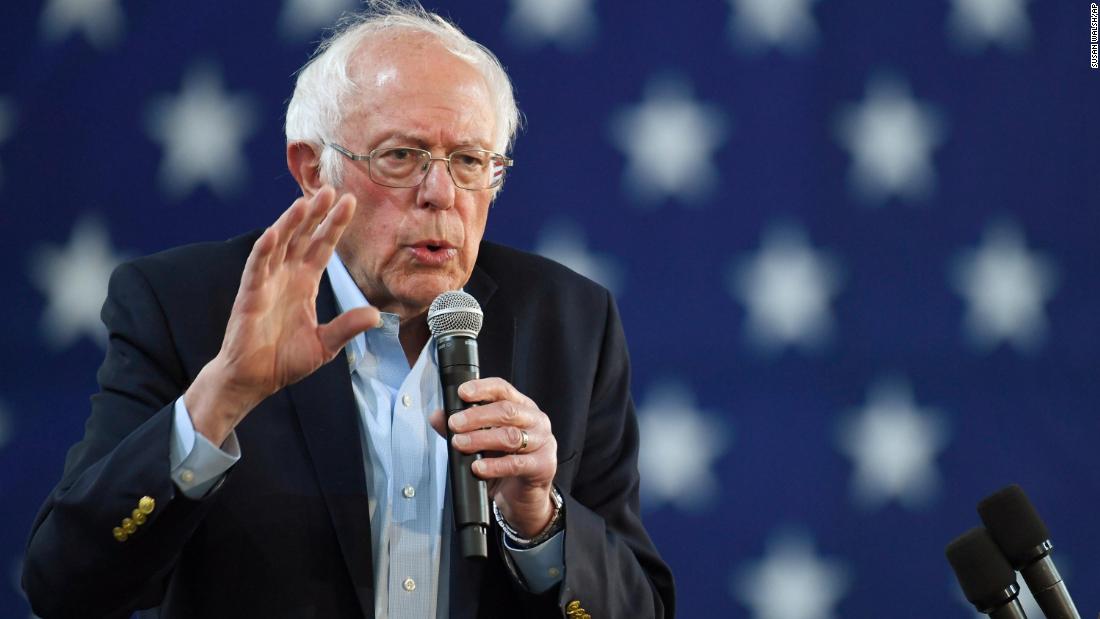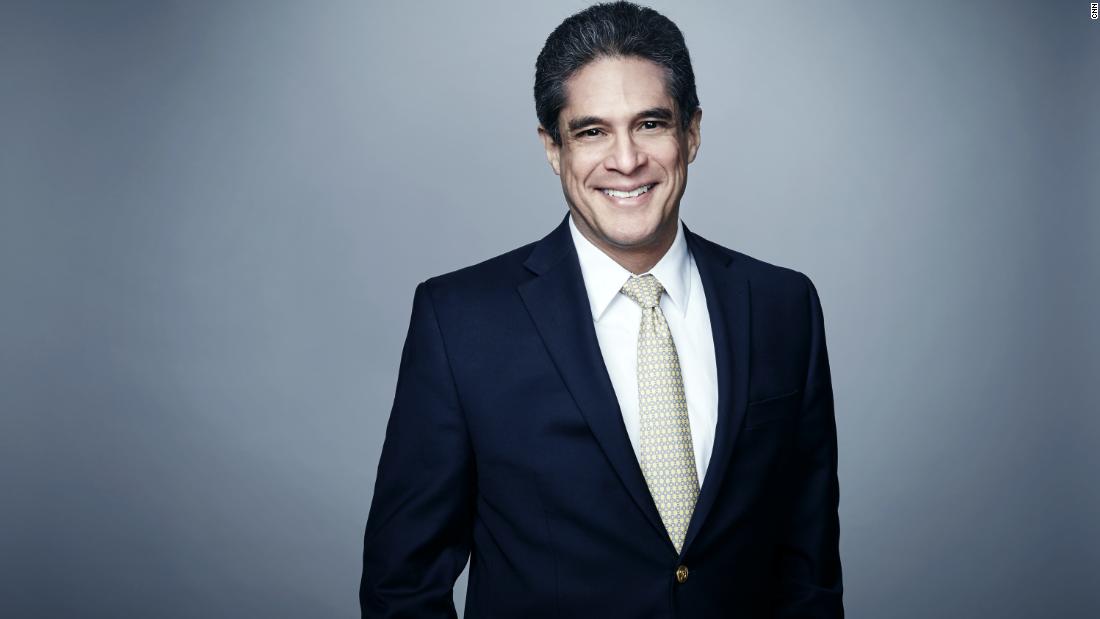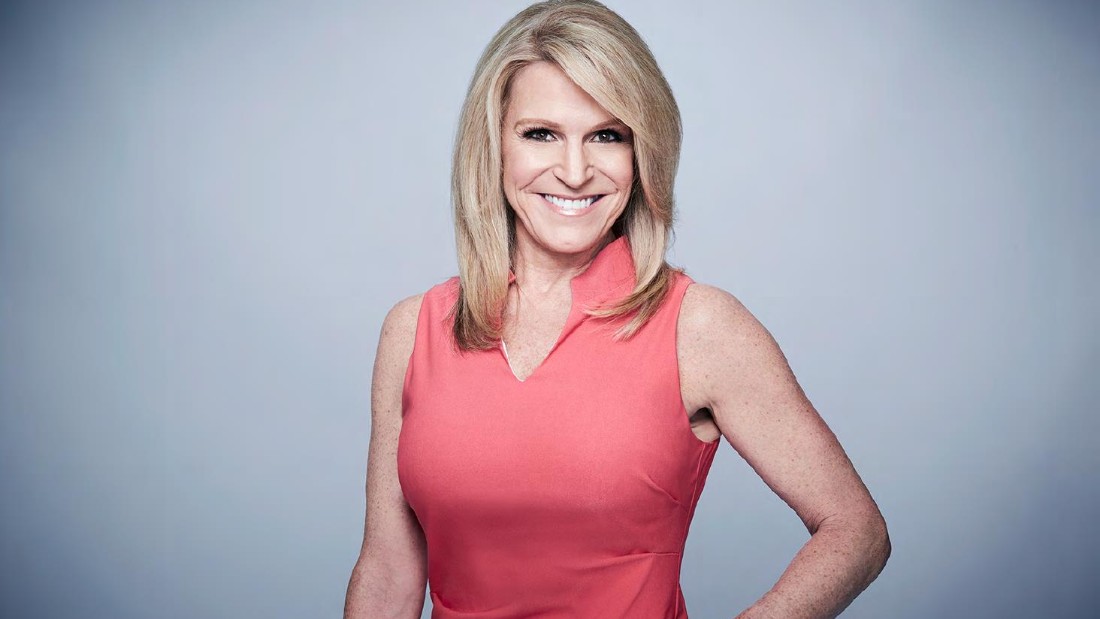
(CNN)CNN Opinion asks contributors to weigh in on the Democratic primary results in Arizona, Illinois and Florida — and what they portend for the race ahead. The views expressed in these commentaries are solely those of the contributors.
SPOILER ALERT: Joe Biden is going to be the Democratic nominee for President. Period. Full stop.
His resounding, astounding victory in Florida doesn’t just send a message, it effectively ends the contest. At this writing, Biden is leading in 67 counties in the Sunshine State. There isn’t a 68th. In Florida, as he has across 16 other states so far, Biden has assembled the multi-ethnic, multi-racial coalition essential for a Democratic victory in November.
Now it’s up to Bernie Sanders to turn his guns — and his millions of energetic, committed supporters — away from the battle and toward the war. Sanders has won in many important ways: there is no doubt his candidacy has pushed the Democratic Party in a more progressive direction. But at the end of the day, as Biden said, voters want results, not a revolution.
The coronavirus pandemic has raised the stakes. Governing is no longer a reality show. Voters may no longer believe that politics is mere spectacle. It is a life and death matter. So many of the qualities that some disparaged in Biden: his calm demeanor, his refusal to demonize, his insistence on unity, his moderate instincts, his decades of experience — they now appear tailor-made for the current crisis.
What’s perhaps most comforting to me is that Democrats really believe in democracy, and they weren’t about to let even a pandemic keep them from turning out to nominate Biden and, ultimately, defeat Donald Trump. Only 8% of Illinois voters and 6% of Florida voters told pollsters, in CNN’s preliminary polling that began last Thursday, that the coronavirus could change their decision to vote.
American voters have often drawn on a deep reserve of courage. We voted during the Civil War. We voted during the 1918 Spanish Flu pandemic. We voted through two World Wars. And African-Americans registered and voted even when racist terrorists cursed them, beat them and murdered them.
Our economy is teetering. Our health system is tottering. But our democracy — at least among Democrats —-is still standing strong.
Paul Begala, a Democratic strategist and CNN political commentator, was a political consultant for Bill Clinton’s presidential campaign in 1992 and served as a counselor to Clinton in the White House.
Tara Setmayer: It’s time for Sanders to step aside
Joe Biden’s landslide wins in Illinois and the important swing state of Florida should be the nail in the coffin for Bernie Sanders’ candidacy. As primary voters in three states headed to the polls in the midst of an unprecedented national public health crisis, it’s clear they decided they want former Vice President Biden to represent the Democratic Party in the November general election.
Over the last week, Biden has capitalized on the president’s inept coronavirus response by presenting his own plan to combat the pandemic and doing so with a reassuring calm and confidence that comes with decades of experience and two terms as vice president.
During the recent CNN head-to-head debate with Sanders, Biden’s experience and practical approach to handling the outbreak came across as sufficiently presidential. Sanders, on the other hand, seemed out of his depth when confronted with how he would respond to the current crisis.
Even with the postponement of Ohio’s primary, the latest results make it almost a certainty that Sanders cannot catch Biden in the delegate count. With more primary disruptions possible due to the coronavirus outbreak, it’s time for Sanders to step aside. Why subject the Democratic primary to any further unnecessary turmoil?
Dragging out the inevitable only helps Trump. The time is now for Biden to pivot to the general.
Tara Setmayer is a former GOP communications director, host of the “Honestly Speaking with Tara” podcast, a Harvard Institute of Politics 2020 Resident Fellow and a CNN political contributor. Follow her on Twitter @tarasetmayer.
Raul Reyes: Everything about the Tuesday primaries was abnormal
So much about Tuesday’s Democratic primaries was abnormal. There were no rallies, no in-person campaigning, no victory parties. As with everything else in American life these days, “Super Tuesday 3” was overshadowed by the ongoing coronavirus crisis. We will never know how much the pandemic affected turnout and enthusiasm, which gives any conclusions an asterisk of uncertainty.
That said, two states with large numbers of Latinos voted on March 17. According to Pew, Florida is home to 3.1 million eligible Latino voters; roughly one in five of the state’s eligible voters are Latino. Arizona has 1.2 million eligible Latino voters, and they make up about a quarter of the state’s electorate.
In Florida, Biden showed that he is capable of recreating the Obama coalition. The big margins he ran up in every county suggest that, as expected, Latino voters came through for him in the Sunshine State. Sanders’ recent comments praising Fidel Castro’s literacy programs no doubt hurt him among Cuban Americans — and likely other Latino voters (such as Venezuelan-Americans) as well. These are voters who are simply not going to cast their vote for any candidate with the “socialist” label attached. Period.
Arizona could have been more favorable territory for Sanders, with a Latino population that skews younger and more Mexican-American than in Florida, though CNN projects Biden has won the Copper State. Now, the Vermont senator is facing the mathematical reality that he may be unable to catch up to Biden in the delegate count. While “Tio Bernie” has set a high standard for engaging Hispanic voters, he has no clear path to win the nomination.
As the likely Democratic nominee, Biden must unify the party before he can unify the country. He needs to show that he can rise to this moment of national crisis. And Biden clearly gets that: In his livestream address, Biden spoke more about the pandemic than his primary wins. He praised first responders and health care workers, then appealed to all Americans, saying, “We have to step up and care for one another.” On what may be the last “normal” primary night that we know, Biden’s tone was serious, sober — and certainly presidential.
Raul A. Reyes is an attorney and a member of the USA Today board of contributors. Follow him on Twitter @RaulAReyes.
Frida Ghitis: The longer Sanders stays, the better Trump’s chances of winning
It’s time for Sen. Bernie Sanders to accept that he will not be the Democratic nominee, and that continuing the fight during a global pandemic and a national existential crisis would be irresponsible. Former Vice President Joe Biden won another round of decisive primary victories, with sweeping victories in Florida, Illinois and Arizona. The electoral arithmetic shows Biden will be the nominee — that’s the inescapable fact.
From now on, every minute of Biden’s attention, every ounce of energy among Democrats, is needed in the quest to deny President Donald Trump another four years in office. The longer Sanders stays, the better Trump’s chances of winning.
The coronavirus catastrophe has shown just how dangerous this President has been. He has bungled the response. As much as some analysts claim the pandemic will doom Trump’s reelection, the opposite could be true unless Democrats unify and focus their efforts.
And Biden has a lot of work to do to counter Trump’s narrative. His speech today, streamed from his home, was blurry, discolored. Trump’s daily appearances in the White House have perfect lighting, a stage, and all the accoutrements of power.
Biden has a powerful message about restoring decency and competency to the Oval Office — and about how Trump mishandled the current crisis. But Trump has the bigger megaphone. He may drown out Biden unless Democrats can pull together. That is up to Sanders now. He should explain the stakes to his followers. This is no ordinary election; no ordinary moment.
Sanders must concede. It’s time.
Frida Ghitis, a former CNN producer and correspondent, is a world affairs columnist. She is a frequent opinion contributor to CNN, a contributing columnist to the Washington Post and a columnist for World Politics Review. Follow her on Twitter @fridaghitis.
Chris King: Dems in the swingiest of swing states love Biden
When I was running as the 2018 Democratic nominee for Lieutenant Governor of Florida, I had the unique opportunity to campaign alongside both Vice President Joe Biden and Vermont Senator Bernie Sanders throughout the state. And while both men are indeed highly respected by the Democratic electorate, on Tuesday Biden undeniably demonstrated that he owns Florida, the swingiest of swing states. And there are a few good reasons why.
First, Biden connects with voters’ hearts. When I campaigned with him, he outworked, outlasted and out hustled me on every rope line. He genuinely loved connecting with people — you had to physically pull him away from voters he wanted to meet. He smiled, he listened, and most importantly, he cared.
Second, Florida hates socialism. It is ingrained in the minds of nearly every Floridian that socialism is the absence of faith and entrepreneurship — two important forces in the fabric of the state. Sanders’ decision to accentuate the positive aspects of Fidel Castro’s regime (namely, his literacy program) was a disaster. Every Floridian, Democrat or Republican, knew that it was simply wrong, and his decision to double down equates to political malpractice.
Third, the power center of the modern-day Democratic Party is the black voter — and Florida, like many southern states, has many black voters. Michael Bloomberg’s $500 million and the army of “Bernie bros” could not do what South Carolina Rep. Jim Clyburn, the black church and working class African-American voters could. Biden is our nominee because black voters love him, trust him and continue to have his back.
Winning Florida is the ultimate path to defeating President Donald Trump in November, and Biden has proved he can do it.
Chris King was the 2018 Democratic nominee for lieutenant governor of Florida. He is the CEO of Elevation Financial Group in Orlando. Follow him on Twitter @ChrisKingFL.
Jen Psaki: What Biden and Sanders must do now
After tonight, a few things are clear. The Democratic primary is pretty much over. The delegate math is nearly insurmountable for Bernie Sanders.
The next few weeks will be a pivotal period for Joe Biden’s team to aggressively court the troves of young people and the millions of Latinos who backed Sanders. The former vice president’s message needs to be stronger, and he needs to reach out more directly to these voters.
It’s also time to have a discussion about what will be in the Democratic platform. Is there language on Medicare for All? Is there language on the Green New Deal?
And it is time for Sanders to decide what he wants both in the months ahead and for his own legacy. He has millions of loyal and dedicated supporters who believe in him and will be watching his body language. He deserves to have a graceful walk off the national stage — and the Biden team should give him that.
But with each day of the coronavirus that passes, it becomes more evident that we cannot continue with a prolonged primary process. The stakes are far too high with a national health crisis and an inconsistent and untruthful leader in the White House.
Jen Psaki, a CNN political commentator, was the White House communications director and State Department spokeswoman during the Obama administration. She is vice president of communications and strategy at the Carnegie Endowment for International Peace. Follow her at @jrpsaki.
Errol Louis: Sanders approaches the point of statistical impossibility
Joe Biden’s powerful performance in Florida illustrates why Bernie Sanders is quickly approaching the point of statistical impossibility, when he cannot hope to match or exceed the number of delegates Biden has amassed.
Biden beat Sanders in all 67 counties in the state. In the northeast corner, he walloped Sanders by almost three-to-one in suburban Duval County, winning 66% to 23%, and by an even wider margin in the conservative panhandle in and around Tallahassee.
Biden showed similar overwhelming margins in the Democratic stronghold of Miami-Dade — and won by double digits in each county of the crucial I-4 corridor connecting Orlando and Tampa.
The breadth of the victory is important. Biden appealed to moderate-to-conservative Democrats in the northern part of the state, progressives in the south and swing voters in the middle. He won Latino voters, a group where Sanders made inroads in California and Nevada.
This swing state famously delivered the White House to the Republicans in 2000 by 537 votes, then swung back to the Democratic column in 2008 and 2012 — before supporting Republican Donald Trump in 2016.
Biden’s win suggests he can appeal to a broad swath of Florida voters, and perhaps deliver the state back to Democrats. And by running up a big lead in the delegate count, Biden looks like the inevitable nominee.
“The math is virtually impossible now. Joe Biden is going to be the nominee of the Democratic Party,” Terry McAuliffe said on CNN.
“It’s over. The election is over tonight. That’s very clear,” said David Axelrod, Obama’s chief campaign strategist.
That may be a bit premature, but Biden is well on his way to the nomination, and he has the Sunshine State to thank for a massive boost.
Errol Louis is the host of “Inside City Hall,” a nightly political show on NY1, a New York all-news channel.
SE Cupp: Dems need a nominee they can get behind
Tolerance among Democrats for Bernie Sanders’ vainglorious and obstinate exercise in futility must be running out after Joe Biden’s projected wins in Florida and Illinois. With no conceivable path to the nomination for Sanders, and a report earlier today in the Daily Beast that he does not plan on quitting after tonight, expect the frustration among Democratic operatives and even voters to grow more vocal.
Sanders is performing WORSE in some counties and states than he did in 2016, vaporizing his only selling point, which was that he could grow and expand the Democratic base. He is not; he cannot. Add to this, of course, the fact that we are in the middle of a pandemic and global health crisis, and it makes his refusal to step aside even more painful and self-centered. Whether you like Biden or not, Democrats need a nominee they can galvanize and coalesce behind. And America deserves an election with a clear choice.
SE Cupp is a CNN political commentator and the host of “SE Cupp Unfiltered.”
Scott Jennings: Democrats are turning out — but so are Trump voters
Much has been made of the increased Democratic primary turnout, and it is true — Democrats are turning out in 2020 in higher numbers than they did in 2016 (a stark reminder of what a mediocre candidate Hillary Clinton really was).
But not to be overlooked is the turnout President Donald Trump is generating in the Republican primaries. Trump’s wins don’t get as much press, but the essentially non-competitive nature of his primary makes his huge vote totals all the more interesting. He’s racking up massive tallies compared to Barack Obama in 2012 and George W. Bush in 2004:
In Michigan, Trump generated 639,144 votes, or nearly four times what Obama did in 2012.
In New Hampshire, Trump did 129,696 votes, or about 2.5 times what Obama got in 2012.
In California, Trump, with 2.1 million votes, just about matching Obama’s raw total in 2008 and 2012 and they are still counting the votes.
Alabama, Arkansas, Massachusetts, Mississippi, Missouri, Oklahoma, Tennessee, and Texas — the story is the same everywhere. Despite having no serious opposition, Trump is racking up enthusiastic GOP turnout across the country. This metric is backed up by a January Associated Press poll which found “Democrats are nervous wrecks and Republican excitement has grown,” ahead of the November election.
Trump has a clearly excited and galvanized party behind him, along with a massive fundraising machine that brought in $86 million in February and $607 million since the beginning of 2019. Despite national polling showing him lagging a bit behind Joe Biden, the all-but-certain Democratic nominee, the president is not to be counted out when you consider the operation and party enthusiasm behind him.
Scott Jennings, a CNN contributor, is a former special assistant to President George W. Bush and a former campaign adviser to Sen. Mitch McConnell. He is a partner at RunSwitch Public Relations in Louisville, Kentucky. Follow him on Twitter @ScottJenningsKY.
Alice Stewart: Coronavirus is dictating who the primary winner is
Leadership in the era of the coronavirus pandemic is clearly on the ballot for voters in Florida, Illinois and Arizona. Before Super Tuesday 3.0, the choice for Democratic voters was moderate vs. progressive. At the height of the coronavirus scare, the driving force for voters appears to be who can they trust to handle a major crisis. And, according to CNN primary polling, voters trust former Vice President Joe Biden over Vermont Sen. Bernie Sanders.
Those numbers are playing out in the ballot box, as Biden is the projected winner in Florida and Illinois.
Biden made a strong case for his ability to lead in tumultuous times during the CNN debate over the weekend. He carried a tone of reassurance and resolve in a time of crisis. Sanders was business as usual — angry and defensive.
It’s no longer about policy contrast — it’s about leadership contrast. In these times, voters want more than someone who touts Medicare for All, the Green New Deal and free college tuition. They want someone who they believe will bring the party together in the primary — and bring the nation closer together in November.
Democratic voters believe Biden is that person.
With Biden leading by more than 200 delegates, the question is now not if Sanders will get out, but when.
Alice Stewart is a CNN political commentator, a Resident Fellow at Harvard University’s Kennedy Institute of Politics, and former communications director for Ted Cruz for President.
Jon Talton: Biden’s win puts Arizona in play for Dems
Joe Biden’s win in the Arizona Democratic primary makes him a bigger threat to President Donald Trump when the Grand Canyon State votes in the general election. Trump won Arizona by 48.1% to Hillary Clinton’s 44.6 % in 2016.
If, as now looks almost certain, Biden becomes the party’s nominee, he has a chance to swing the state’s large independent voter base towards the Democrats.
Two large questions will be answered in the general election, as Trump seeks to repeat his 2016 Arizona win. Has an influx of Californians changed the state’s political make-up? And will historically low Hispanic voter turnout change, as a rebuke to Trump’s border wall and anti-immigrant policies?
Key factors to consider: Arizona’s massive population growth hasn’t changed its steady drift to the right. Republicans have controlled the powerful legislature for decades. And the anti-immigrant policies of the notorious former Maricopa County Sheriff Joe Arpaio, as well as the state’s controversial SB 1070 “papers please” immigration legislation, failed to produce a Hispanic voter backlash.
True, Arizona’s congressional districts are now evenly split, and the state has a Democratic Senator with Kyrsten Sinema — but she’s a “blue dog” conservative, not a “revolutionary.”
Still, Arizona has an independent streak. Trump’s unpopularity might give Biden a better chance than a progressive candidate like Bernie Sanders would have had.
Jon Talton is a fourth-generation Arizonan and former Arizona Republic columnist. He blogs on Arizona politics and history at Rogue Columnist.
Nayyera Haq: Sanders’ key voting blocs fail him again
The fact that young people in Florida were flocking to beaches while much of the country is shutting down to prevent a pandemic from spreading further tells you a little about the priorities of a key Bernie Sanders voting bloc. The youth may have championed Sanders online and at rallies on college campuses, but once again they did not turn out to support him at the polls when it counted. Meanwhile, older voters and black voters handed Biden a decisive win in Florida.
Tio Bernie has had some success with Latino voters thus far, netting 53% of the Latino vote in Nevada. But he came up against the diversity that exists within communities of color in Florida. Of the Latinos in Florida, 1.2 million claim to be of Cuban descent, and many of them identify as exiles from Fidel Castro’s regime.
No matter how accurate the statement, they would not have appreciated Sanders’ praise of the Castros’ literacy programs. And, in a state like Florida, where voters in both parties are keenly aware their state helps decide Electoral College victories, language that turns off a significant voter population can be decisive.
This is the ongoing rhetorical challenge that has hampered Sanders when it comes to the delegate math needed to win the nomination. He tries to speak his own version of truth to power, but it isn’t necessarily what power brokers or voters are interested in hearing
Nayyera Haq is a host on SiriusXM Progress and CEO of an international communications firm. She served in the Obama administration as a senior adviser in the State Department and a senior director in the White House. Follow her on Twitter @nayyeroar.
Original Article : HERE ;
from AllAbout https://allabout.pw/bernie-sanders-devastating-losses-put-him-on-the-spot/












No comments:
Post a Comment